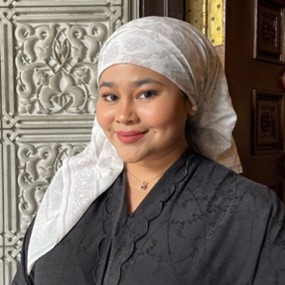
Evolution
Stigma continues to overshadow conversations on mental health in Malaysia, often framing mental health disturbances as tests of resilience. Meanwhile, those who seek help – whether professional or not – continue to be viewed as weak individuals that could bring shame upon their family. Such an “obligation” to quietly endure one’s life challenges is deep-rooted in Malaysia’s cultural norm, with some individuals potentially taking pride in it.
This has left little room for open conversations about mental wellbeing in the country, though recent years show that there is a powerful cultural shift. What has driven this transformation and what challenges lie ahead?
Cultural Context
We must first acknowledge the historical context to understand this shift. In Malaysia, where there is a strong emphasis on cultural and religious norms, mental health is long considered of lesser priority to physical health.
Family members are discouraged from openly discussing their personal struggles due to the prevalence of norms such as saving face and honouring family reputation. Such norms remain deep-rooted in the Malaysian community and thus one’s admission to mental health struggles is akin to tarnishing their family’s image in front of the wider community.
The norm of saving face is so ingrained in the society that major cultural proverbs or practices are associated with it.
For example, the famous prophetic hadith sabar itu separuh daripada iman (patience is half of faith) captures the Malay cultural emphasis on patience and endurance as a sign of religious strength and piety.
Meanwhile, the Chinese concept of xiao shun or filial piety reflects the importance of familial reputation and the expectation to prioritise family’s honour over personal struggles. The famous animated Disney movie Mulan captured this well, as the main character struggles to bring honour to her family by challenging the society’s standards of what is considered honourable.
On the other hand, among the Indian communities in Malaysia, there is a tendency to approach mental health challenges through a spiritual lens, whereby personal struggles are often associated to karma, divine punishment or unbalanced spiritual practice. Consequently, such an approach encourages a dependence on religious solutions to address the problem, instead of seeking advice from professionals.
There is a silver lining across all three: these sayings and perspectives may discourage those with mental health challenges from openly discussing them. This is a problem prevalent not only in Malaysia but also in other parts of Asia, where mental health disturbance is more often than not attributed to weakness in character rather than a legitimate health concern. Moreover, the lack of familiarity with the mental health concept among older generations often leads to chronic underreporting and lack of treatment.
Fortunately, there are signs that this trend is shifting. Institutions and organisations such as Mental Illness Awareness & Support Association (MIASA), the National Association of Christian Counsellors Malaysia (NACC Malaysia) and the Kuala Lumpur Buddhist Mental Health Association have started integrating spiritual therapy and counselling into their mental health services.
Such progress received a boost during the pandemic when there was a hike in the number of people suffering from stress, anxiety and depression. On the flipside, this was perhaps a blessing in disguise: During this period, the government increased funding for mental health needs, having recognised this growing problem as a public priority.
These steps emit a positive signal of the changing conversation surrounding mental health in Malaysia – that it is acceptable to seek help and that silence should not be the norm.
Despite this, Malaysia’s vibrant social media continues to pose risks as well as afford opportunities to the country’s mental health landscape.
The Two Sides of Social Media
Social media does pose risks to one’s mental health, with problems such as online bullying, data breaches and exposure to negative content. Within Malaysia’s younger communities, what should we be looking out for?
The comparison trap is the first instance. Platforms like Instagram and TikTok could instigate one to engage in constant self-comparison due to the promotion of idealised portrayals of life by other users and influencers. For example, trends like the “that girl” aesthetic on TikTok showcase luxury lifestyles with unrealistic living standards that do not sit well with the lived reality of the B40 and middle-class communities in Malaysia. Contents promoted by the algorithm also often leave viewers feeling inadequate and adds the continuous stress of meeting an unattainable lifestyle.
In general, over 60% of youth reported their lives were lacking compared to others, creating a strong urge to stay connected online and avoid experiencing the fear of missing out (FOMO). Malaysian youths are also susceptible to this, with the community already being pressured to excel academically and professionally.
Doomscrolling is another issue. It is an endless consumption of content on social media, which could leave a user losing hours of life in a day. Doomscrolling could intensify feelings of fear and insecurity, especially if a user falls into the comparison trap discussed above.
The effect could be worse if the content is negative and distressing in nature, such as political brouhaha or visuals of Israel’s carnage in Gaza. In Malaysia’s context, prolonged exposure to sensationalised news like Malaysia’s political instability and economic challenges only increases anxiety, depression, and a sense of helplessness.
Mental health challenges, unfortunately, have also prompted individuals to seek information online and engage in self-diagnosis. This could be a problem, especially since there is so much false information spreading online whereas mental health diagnosis requires a professional touch. Wrongful self-diagnosis could also lead to misguided treatments that further complicate the problem. It has to be acknowledged that the tendency to self-diagnose could be born out of fear of being stigmatised by the society, as discussed above.
These, however, should not erase its positive contributions.
Platforms such as Facebook, Instagram and TikTok have provided Malaysians (especially younger ones) with a safe space to find support during challenging times. This has also ushered in the burgeoning of mental health influencers as well as online advocates such as Dr Joel Low, Tengku Puteri Iman Afzan, Che Puan Sarimah Ibrahim and Dr Amer Siddiq in the last few years. All of them have encouraged conversations around this topic that was once considered taboo.
The growing acceptance of mental health discourse in social media has made it easier for Malaysians to acknowledge that they are not alone in their struggles. There are positive examples of how this has manifested lately.
The #KitaJagaKita campaign during the pandemic shows the power of social media to transform community-based pandemic relief initiative into a nationwide movement centred around mutual care and wellbeing. Meanwhile, the Ministry of Health’s TikTok campaign offered information regarding suicide prevention resources to stave off the alarming increase of the suicide rate during the pandemic. The Ministry also hosted live sessions featuring mental health professionals to help the audience address the pressure on their mental health as they navigated the lockdown.
All in all, these activities and campaigns have contributed to the destigmatisation of mental health but also enabled access to mental health resources such as the Malaysian Mental Health Association (MMHA) and Befrienders.
We should thus acknowledge that social media can be a double-edged sword in relation to mental health. Responsible use of social media is thus a solution for Malaysians to be able to navigate the risks while benefitting from its boon. When used mindfully, social media can serve as a powerful tool for raising awareness and connecting Malaysians with support networks and coping resources.
Way Forward
This article aims to portray a fraction of the mental health landscape in Malaysia. While cultural barriers remain, there are trends challenging these that help destigmatise mental health conversations in the country. Though social media poses risks, it has proven instrumental in enabling open conversations, connecting users to online resources and shifting attitudes towards this “taboo” subject. Any mental health-related campaign in Malaysia could benefit immensely from the opportunities that it affords.
Moving forward, a focus on increasing digital literacy is critical to building a healthier and more inclusive mental health culture. These efforts ensure that mental health becomes as equally prioritised as physical health, fostering a community where openness and compassion define resilience. While the journey toward mental health acceptance is ongoing, each step forward brings us closer to a culture that embraces vulnerability and openness as signs of strength.
